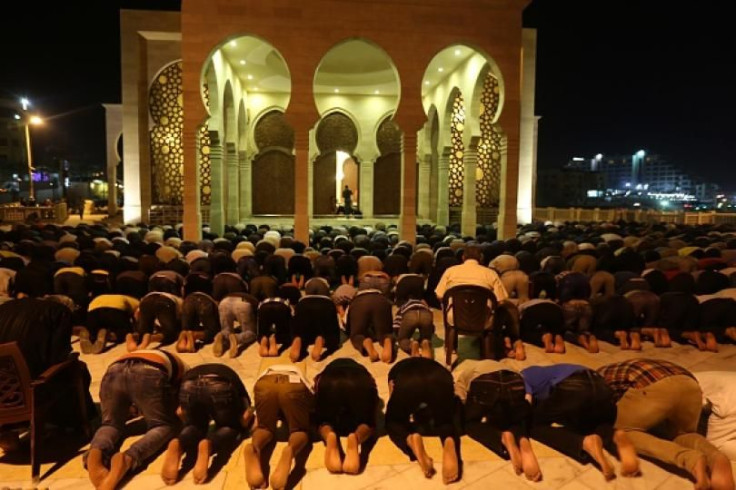Ramadan Quotes 2016 In English: 10 Sayings About Fasting

The start of Ramadan means most practicing Muslims will fast from dawn to sunset without water or food every day for a month. To help get through the next 30 days, 10 quotes about fasting are shared below, courtesy of Brainy Quote.
1.“Fasting is, first and foremost, an exercise for identifying and managing adversity in all its forms. With faith, in full conscience, fasting calls women and men to an extra degree of self-awareness.” —Tariq Ramadan, professor of Contemporary Islamic Studies at Oxford University
2. “Through prayer, fasting, and studying, God will answer.” —Monica Johnson, Screenwriter Monica Johnson
3. “Start the practice of self-control with some penance; begin with fasting.” —Mahavira, who is considered the founded of Jainism
4. “Having soon discovered to be great, I must appear so, and therefore studiously avoided mixing in society, and wrapped myself in mystery, devoting my time to fasting and prayer.” —Nat Turner, an enslaved African American who led a rebellion of slaves and free blacks in Southampton County, Virginia
5. “We observe that in the scriptures, fasting almost always is linked with prayer. Without prayer, fasting is not complete fasting; it's simply going hungry.” —Joseph B. Wirthlin, an American religious leader
6. “A fast is not a hunger strike. Fasting submits to God's commands. A hunger strike makes God submit to our demands.” —Edwin Louis Cole, the founder of the Christian Men's Network
7. “Periodic fasting can help clear up the mind and strengthen the body and the spirit.” —Ezra Taft Benson, religious leader who served as United States Secretary of Agriculture
8. “We must master our egoism, and through this mastery, step outside ourselves and educate ourselves in giving. “Fasting requires that we rediscover all that is alive around us, and reconcile ourselves with our environment.” —Tariq Ramadan, professor of Contemporary Islamic Studies at Oxford University
9. “The philosophy of fasting calls upon us to know ourselves, to master ourselves, and to discipline ourselves the better to free ourselves. To fast is to identify our dependencies, and free ourselves from them.” —Tariq Ramadan, professor of Contemporary Islamic Studies at Oxford University
10. “Instead of looking outside of ourselves and counting potential enemies, fasting summons us to turn our glance inward, and to take the measure of our greatest challenge: the self, the ego, in our own eyes and as others see us.” —Tariq Ramadan, professor of Contemporary Islamic Studies at Oxford University
Follow me on Twitter @mariamzzarella
© Copyright IBTimes 2025. All rights reserved.






















